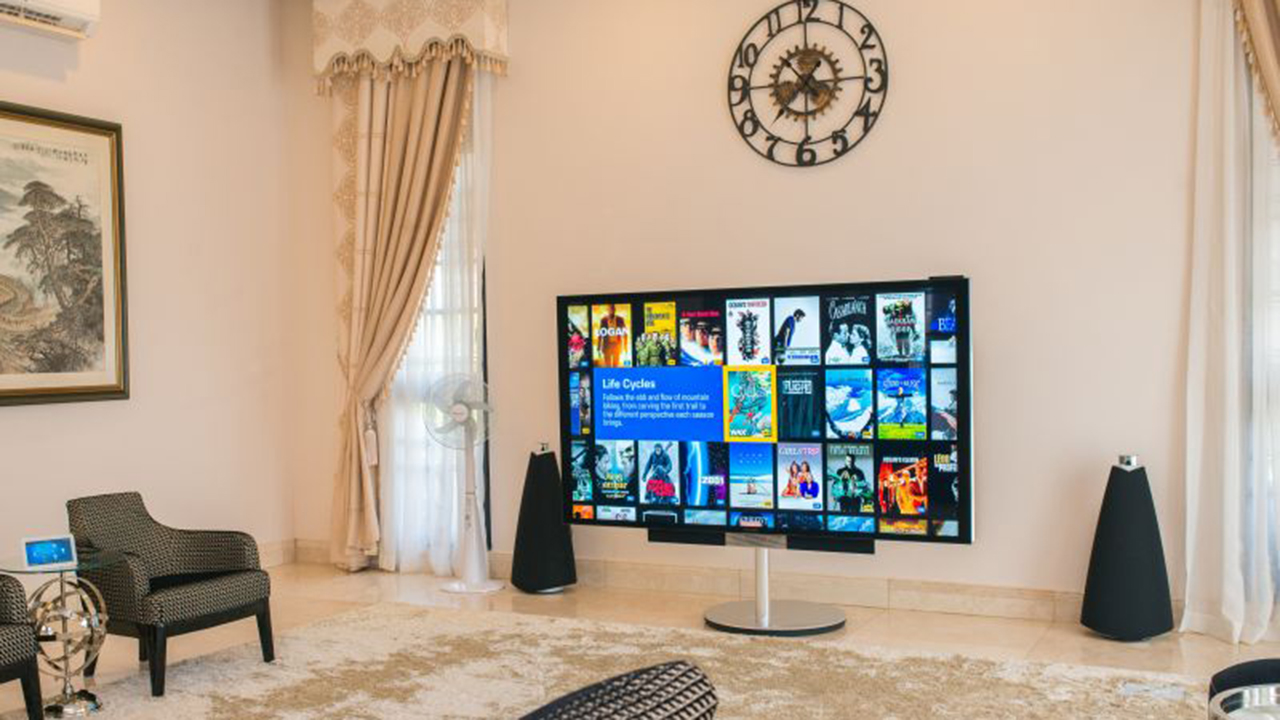Cities like Lagos, Abuja, and Port Harcourt are experiencing an urban shift. Billboards that once advertised “24-hour power supply” now boast Internet-ready homes—apartments fitted with high-speed broadband connections.
As digital work becomes central to modern life, the internet is emerging as the fourth essential utility—alongside water, electricity and shelter.
This evolution is more than a marketing trend; it reflects a broader truth. In today’s economy, connectivity defines opportunity, and for millions of Africans, the reliability of a home’s internet connection can now determine how they learn and earn.
The digital awakening
The COVID-19 pandemic blurred the boundaries between home and work. As much of the world’s affairs shifted online, employers, educators, and creators adapted to remote and hybrid systems. But the transition also exposed one of the world’s sharpest inequalities— the digital divide.
“Since Covid, we’ve seen how critical home internet access has become,” explains media researcher Fungai Machirori, “Many people were working remotely online, and so it is very important for homes to have internet or to be internet ready.”
Prior to the pandemic, broadband penetration in Nigeria stood at 37.80%, reported the Nigerian Communications Commission.
By 2024, though, it had climbed to 43.53%, thanks to both government-led expansion and private investment.
But access remains highly uneven. Urban centres dominate the broadband map, while rural communities still rely on unstable mobile data or costly satellite links.
In 2022, a World Bank report found that only 36% of Sub-Saharan Africans have access to affordable and reliable broadband, while that number drops significantly outside of major cities.
For many freelancers, students, and remote employees, this gap is an economic barrier.
When homes becomes the office
The boundaries between home and workplace have all but disappeared. For Nigeria’s growing digital workforce—freelancers, tech developers, virtual assistants—the home is now both studio and office.
Freelancing platforms like Upwork, Fiverr, and Toptal have emerged to be a financial lifeline for many Nigerians, offering them the opportunity to connect with the rest of the world.
According to the world bank, Nigeria alongside Kenya and South Africa represent around 17.5 million gig workers in sub-Saharan Africa.
Among these freelancers is Ikechukwu Godwin, who is 30 years old, from Enugu, southeastern Nigeria,
“When I started freelancing on Fiverr in 2020, I used to go to a cyber café every day just to send proposals and upload my design files,” he recalls. “Sometimes, the café generator would go off, and I’d lose unsaved work. It was frustrating,but I couldn’t afford to miss deadlines.”
However, things changed for Godwin in 2023, when he moved into a new housing estate with a fibre-optic connection.
“I now work from my room. I can receive calls from clients in the UK, upload heavy website files within minutes, and even conduct teachings on how to design websites on Zoom. My productivity has doubled, as well as my income,”
Building for a digital future
Several Nigerian real-estate developers are increasingly partnering with other broadband firms such as Open Access Metro, ISN and FiberOne, to install the fibre optic technology in housing developments.
They now integrate high-speed internet infrastructure into their housing projects. For instance, LandAfrique Nigeria Limited partnered with MTN Nigeria to deploy fibre-optic broadband in a certain estate in Ogun State.
In the same vein, FiberOne Broadband reports having “passed over 100,000 homes” with fibre-to-the-home (FTTH) infrastructure across Nigeria.
“These days, most estates are asking for fibre even before the houses are finished,” says Kalu Victor, an Abuja-based fibre technician. “People now ask about Wi-Fi before they even ask about water, the internet is no longer a luxury, it’s part of our basic needs.”
The benefits go beyond convenience. Internet-ready housing aligns with the country’s ambition to build a digital economy catering to millions through remote work and small-scale entrepreneurship.
“A lot of work continues to happen in the digital space, so having internet-ready homes is increasingly essential,” notes Machirori, the media researcher.
A booming gig economy
The International Labour Organisation, or ILO, estimates that 230 million digital jobs could be created by 2030 across the continent, driven largely by freelancing and platform work.
For young Nigerians like Godwin, this is already a lived reality.
“I’ve worked with clients from five different countries without leaving my room,” he says proudly. “I pay my rent, support my siblings in school, and even take online courses, all through money I earn from the internet.”
He pauses, then adds, “But if my connection goes off for a day, omoh, they’ll be a lot at stake — projects, clients, and sometimes trust, because I can’t tell my client that I didn’t meet up the deadline because I lacked a stable internet connection.”
Nigeria’s connectivity gap
Although some headway has been made, much work remains to be done. According to the NCC, Nigeria currently requires more than 120,000 kilometres of fibre for national coverage.
The expansion of such infrastructure is very expensive in some places and also occasioned by high importation fees and poor road access.
Apart from the cost, there is another major challenge: vandalism, cables are often cut or stolen, thereby hindering connectivity.
While service providers are often inclined towards servicing urban centres as profit margins are higher, rural communities generally rely on unstable mobile networks.
Together, these challenges deepen the digital divide that defines who can actually take part in the growing online economy in Nigeria and who cannot.
Bridging the digital divide will require coordinated policy and private investment. The National Broadband Plan (2020–2025) aims to achieve 70% penetration by the end of 2025, supported by the Nigerian Infrastructure Fund, which co-finances regional fibre projects and offers tax incentives for internet deployment in housing estates.
Other developments on the African continent are showing promise.
In Kenya, the “National Fiber Optic Backbone Infrastructure” has already linked over 50 counties to high-speed broadband While the “City of Cape Town Smart Home Programme” in South Africa subsidises the laying of fibre-optic cables in poor areas.
Thus, these examples show that broadband access can and should be treated as a social right, not just a market product.
A future built on fibre connection
According to officials, widespread adoption of internet-ready housing could add $25 billion annually to support diversification and Nigeria’s agricultural output.
However, there is much more to the revolution than the figures involved. It is about freelancers like Ikechukwu Godwin, who does not have to run to the cyber café to deliver on deadline, or about the student who can now join an online course without buffering.
The world is rapidly advancing towards a digital reality, and Nigeria cannot afford to be left behind. Reliable home internet is no longer a luxury—it’s the foundation of education, commerce, and employment in the 21st century.
Developers, policymakers, and service providers have a collective responsibility to make connectivity as fundamental as water and power.
Summary not available at this time.





